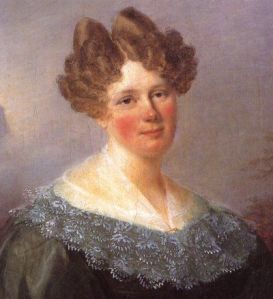So some of those that fought in the War of 1812, the X-mark signature would have been an easier option than signing their names when required – and a mere description of their appearance didn’t suffice to identify them. Literacy rates in North America ranged from 60% to 90%, but more in the towns. In rural and frontier areas this was much lower, and the figures excluded slaves that were not allowed to read and write, plus many First Nations had a more oral tradition. Great Britain had the highest literacy rate in Europe.
However, there is a misconception that people used X’s because they were illiterate. Not so! Literate people also used the X mark on legal documents until about 1860. (And illiterate people often knew how to draw a signature even if they couldn’t read.) What mattered was not the size of your signature but the guarantee by the notary that you were who you said you were. Until 150 years ago, most legal forms were copied by hand by a clerk or scrivener; the notary or lawyer (or the clerk) would then carefully write in the dates and names. All this was done with a quill or steel dip pen, which were difficult for the average person to handle.
For some of the participants in the War of 1812 the conflict was the defining moment of their lives, and they were well aware of it. A number of young soldiers penned brief diaries and journals that show how the war began for them as an adventure, but ended in many cases with injury, imprisonment and grief. For women, too, the war was a trial, a test of their fortitude and resourcefulness, but it was also a window onto a wider world. Their journals in turn have become our window onto a war that took place two centuries ago.
Although substantial first-person records of the war comes primarily from the educated classes, exceptions are the memoirs written by the British foot solider, Shadrach Byfield, and the American militiaman, William Atherton. Their experiences encompass the full experience of war – battles, injuries, imprisonment and aftermath. And don’t forget James Madison’s personal slave, the fifteen-year-old boy Paul Jennings, who was an eyewitness and published his memoir in 1865, considered the first from the White House.
Most of the journals were written by men, such as law student John Beverly Robinson, Mohawk chief John Norton, and well-educated John Pendleton Kennedy. But several diaries and letter collections from women survive, notably of Mrs. Josiah (Lydia) B. Bacon, wife of the U.S. Lieutenant and Quartermaster Josiah Bacon. The more famous quotes are from first lady Dolley Madison, whose letters to her sister, Lucy, are the basis for her well-known account of the burning of Washington. Anne Prevost – Anne was a daughter of General Sir George Prevost, Governor General of the British forces in Canada. At seventeen she was a faithful journal keeper, and she made almost daily entries during the time her father was prosecuting the war.
The fictional memoirs in my novel “Seeking A Knife” are loosely based on the journal of Lieutenant David Wingfield, Royal Navy.
Further Information:
http://umbrigade.tripod.com/articles/women.html
http://www.pbs.org/wned/war-of-1812/essays/personal-journals-war/
http://colonialquills.blogspot.co.uk/2011/06/literacy-in-colonial-america.html
https://wardsville.wordpress.com/2010/03/10/the-roles-women-played-in-the-war-of-1812/
PREVIOUS A TO Z POSTS
Details on my 2015 A to Z theme and a linked list of posts can be found on my A to Z Challenge page, which also has a linked list of my 2014 posts.
The brainchild of Arlee Bird, at Tossing it Out, the A to Z Challenge is posting every day in April except Sundays (we get those off for good behaviour.) And since there are 26 days, that matches the 26 letters of the alphabet. On April 1, we blog about something that begins with the letter “A.” April 2 is “B,” April 3 is “C,” and so on. Please visit other challenge writers.
My theme is ‘The War of 1812’, a military conflict, lasting for two-and-a-half years, fought by the United States of America against the United Kingdom of Great Britain and Ireland, its North American colonies, and its American Indian allies. The Memoirs of a British naval officer from the war is central to my novel “Seeking A Knife” – part of the Snowdon Shadows series.
Further reading on The War of 1812:
http://www.eighteentwelve.ca/?q=eng
http://www.history.com/topics/war-of-1812
http://www.theglobeandmail.com/globe-debate/the-war-of-1812-stupid-but-important/article547554/






![A2Z-BADGE-000 [2015] - Life is Good](https://rolandclarke.files.wordpress.com/2015/03/a2z-badge-000-2015-life-is-good.jpg?w=300&h=300)
I just learnt something new. I guess today we take it for granted that almost everyone can read and write, the few who can’t are a sort of outcast.
LikeLike
Guess it depends on the demands on lifestyle and back then it wasn’t crucial to ‘frontier’ survival. What was so interesting is that literacy was already so high – mainly due to religious education. But with notable exceptions.
LikeLiked by 1 person
Nice job with X! (smile) Blessings!!
LikeLike
Thanks Ann. X wasn’t easy as very few place names in North America begin with X. And the ones I found had vague War of 1812 connections. No First Nations either. But I regretted not mentioning those memoir writers days earlier – and I had my X.
LikeLiked by 1 person
🙂
LikeLike
Another wonderful example of why I am now following this blog. So well done!
LikeLike
Thank you Stepheny for another compliment. 🙂
LikeLike
Hey, I didn’t know that about X as signature.
I find it so fascinating that we can read accounts of events happened so long ago from personal accounts and letters. Imagine how many things our descendets will know about us from the Internet. They won’t need to study us, we’re basically displaying ourselves 😉
LikeLike
But will they believe everything we post on Facebook? 🙂 Are we writing or re-writing our own history? Strangely just put my X on my postal ballot paper in UK’s General Election, but I needed to sign an accompanying piece of paper. But voting is going digital they say.
LikeLike
‘They’ say so many things… 😉
LikeLike